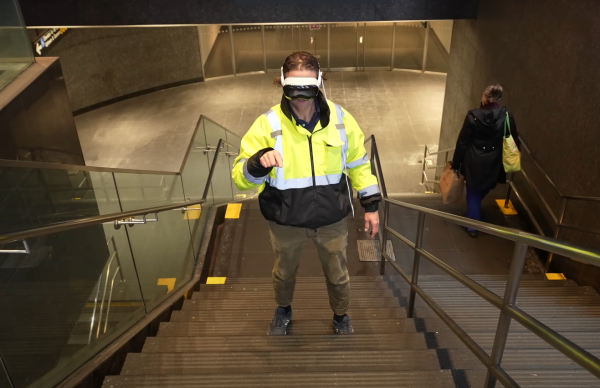The Insidious Genius Behind Borat
How Sacha Baron Cohen tells the story of humanity’s absurdity.
Known for his outrageous performances in “Borat” and “Borat 2,” “Brüno” and “Da Ali G Show,” Sacha Baron Cohen has been branded a comedic genius. His approach to expressing his narrative is unconventional as it is seldom presented through storylines, breathtaking plot-twists or character arcs. Instead of following the traditional path of comedy, Sacha Baron Cohen secured his niche by producing “mockumentaries”—a genre of film which resembles a documentary but is satirical in nature. What makes Cohen’s mockumentaries unique is that they are unscripted; using only a small team of himself, a sidekick, a cameraman and a lawyer, Cohen embarks on a worldwide mission to secure “interviews” from oblivious ordinary civilians and people of high recognition.
In his mockumentaries, Cohen immerses himself in the personas of extremely provocative characters; arguably, his ability of making audiences laugh until they are gasping for breath is by portraying someone who has questionable morals. This is reflected in his character’s embracement of unbelievable vulgarity, reckless sexual endeavors and open endorsement of social taboos. However, Cohen’s provocativeness does not end at the scenes of his full-frontal nudity or a clip of him riding off on a motorcycle with an unstrapped babysitting on the steering wheel. Rather, his true genius lies in his remarkable ability to bring out the worst sides in people. This exact provocation is what allows Cohen to expose the true colors and values of the individuals he interviews. If one pays close enough attention to the themes of Sacha Baron Cohen’s films, they will quickly understand that they are built on the idea that there is something seriously wrong with humanity.
While Cohen has received understandable backlash for portraying characters who are anti-Semitic, racist, and homophobic, the overlooked issue is not in the portrayal of his problematic characters, but in the people that he interviews. It is important for viewers to remember that only by immersing himself in these outrageous personas is Cohen able to siphon responses out of people that no else would be able to. Ironically, it is only by “becoming” a terrible person he is able to expose terrible people.
In “Brüno,” Cohen exposes the dark reality of child beauty pageants and parental neglect by pretending to be a professional photographer. Upon creating a fabricated photoshoot, several people show up with their young children. Cohen proceeds to ask parents questions regarding if they’d be comfortable with their child being photographed on a crucifix, being surrounded by live wasps and hornets, being near dead or dying animals or untrained people conducting scientific experiments on the kids. To the viewers’ shock and dismay, the parents responded positively to each of these conditions.
Throughout “Borat 2,” Cohen and his “daughter” Tutar wreak havoc in the American South. In a particular scene, Cohen and Tutar enter a plastic surgeon’s office during which Cohen emphasizes that he wants his 15-year-old daughter to attract “top level guys.” The surgeon begins giving his opinions on what procedures he wants to do on the teenager, which included breast augmentation and a nose job. Upon Tutar asking if she looked like she had a “Jewish nose” the plastic surgeon proceeded to say “no” and give an exaggerated example of what “Jewish” noses look like. Responding to the comment of breast augmentation, Tutar said that she wants her breasts large enough that older men want to have sex with her. Upon making the comment and asking if the surgeon would find her appealing after the procedure, the doctor responds with, “If your father was not here.”
Cohen’s films give viewers a profound idea of what it means to be insidious. While his characters and personas are portrayed through openly bigoted individuals with questionable morals, they still manage to demonstrate an extraordinary degree of subtlety. This subtlety does not lie in the views or ideas of Cohen’s characters, but in the responses he is able to provoke from others. Because of this, it is easy to forget Borat is a made-up character; viewers are so infatuated by his provocativeness that they forget that the real evil lies in the people he interviews. Through “becoming” the problem, Cohen able to find and attract the real-life people who support and enable the deep-rooted problems of racism, anti-Semitism and sexual abuse in the United States. This unique brilliance and niched approach to humanity teaches us the important lesson that if one gives people the safety net of being able to express their views without repercussions, they will take full advantage of it and shamelessly reveal their true colors.
Your donation will support the student journalists of Saint Louis University. Your contribution will help us cover our annual website hosting costs.









